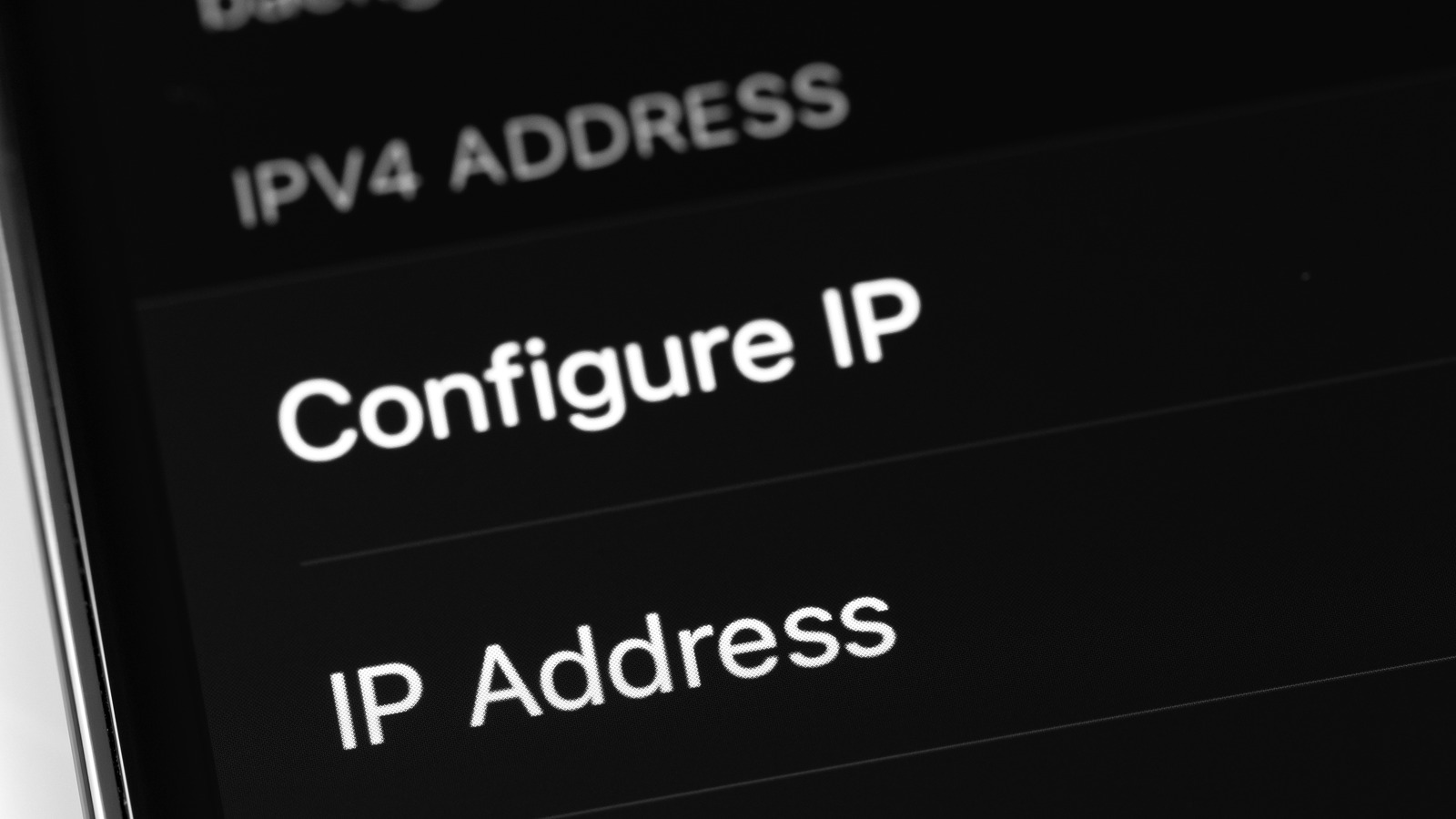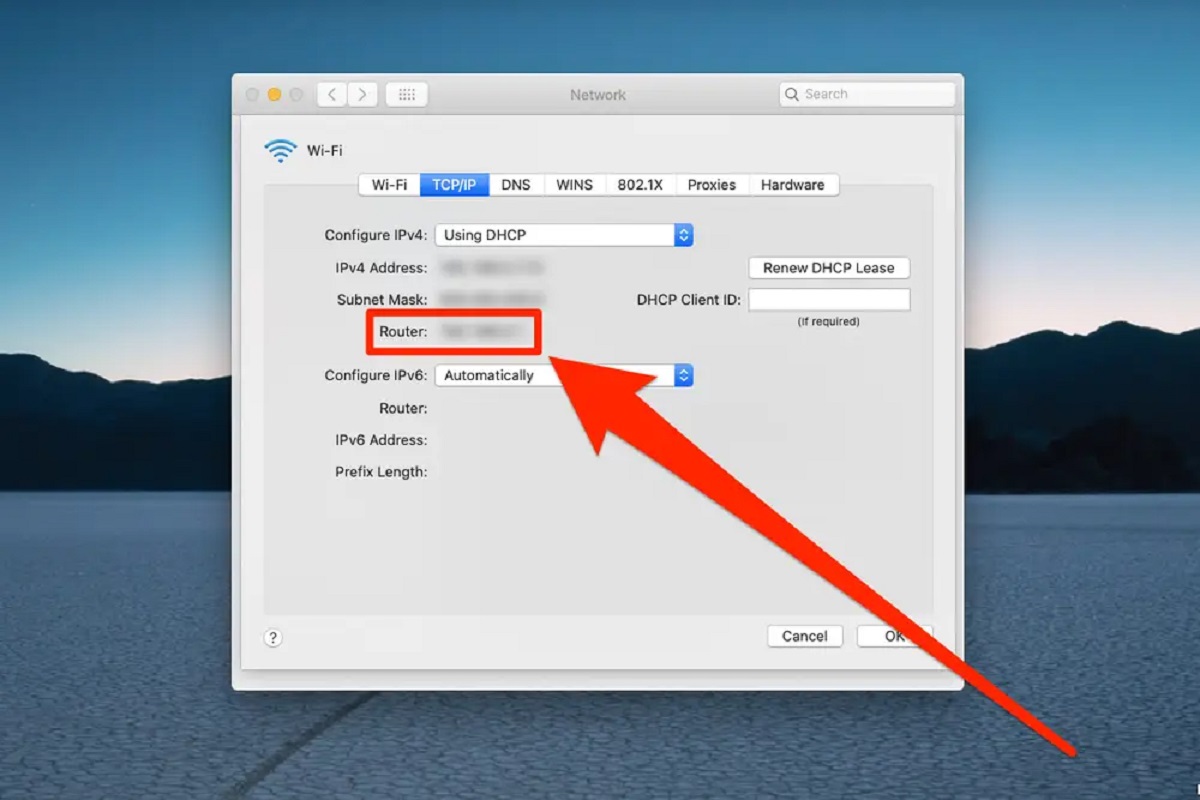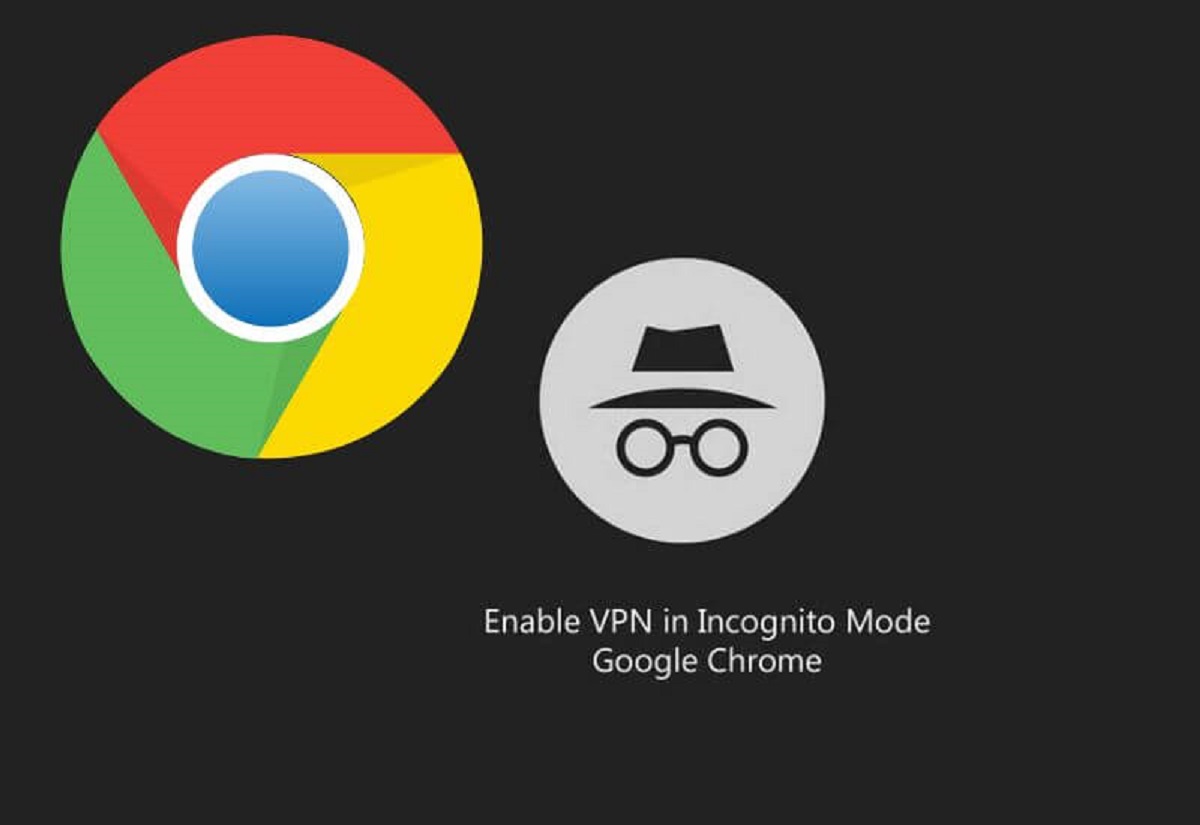What Is an IP Address?
An IP address, or Internet Protocol address, is a unique numerical label assigned to every device connected to a computer network that uses the internet protocol for communication. It acts as a unique identifier for devices, allowing them to send and receive data across the internet.
Think of an IP address as a digital passport for your device that enables it to interact with other devices and servers on the internet. Just like how your home address helps mail carriers deliver packages to your doorstep, an IP address allows data to be transmitted to and from your device.
IP addresses consist of a series of numbers separated by periods. The most common version of IP addresses used today is IPv4, which has four sets of numbers ranging from 0 to 255. For example, an IP address might look like “192.168.0.1”. However, with the growing number of devices connected to the internet, IPv6 was introduced, which uses a longer and more complex address format to accommodate the expanding demand.
IP addresses are essential for device communication as they help route data to the correct destination. When you browse the web, send emails, or stream videos, your device communicates with various servers, and each server recognizes your device using its IP address.
Furthermore, IP addresses can provide valuable information about the geographical location and internet service provider (ISP) related to the device. This information can be used for geo-targeting, improving network infrastructure, and enhancing cybersecurity measures.
In the next section, we will explore how IP addresses function and the significance of knowing your IP address.
How Does an IP Address Work?
IP addresses work by establishing a unique identification system for devices connected to a network. When a device connects to the internet, it is assigned an IP address, which allows it to send and receive data across the network.
When you type a website address into your web browser, such as “www.example.com”, your device sends a request to a DNS (Domain Name System) server to translate the human-readable address into an IP address. This IP address directs your request to the correct server hosting the website you want to access.
Once the request reaches the correct server, it processes the information and sends back the requested data to your device. This data transmission is possible because the IP address acts as a unique identifier for your device, allowing the server to route the data to the correct destination.
IP addresses consist of two key components: the network identifier and the host identifier. The network identifier specifies the network the device is connected to, while the host identifier identifies the specific device within that network. This combination ensures that data is directed to the intended destination within the network.
IP addresses also allow for differentiation between public and private addresses. Public IP addresses are assigned by ISPs and are unique across the entire internet, while private IP addresses are used within local networks, such as your home or office, and are not visible to the public internet.
Furthermore, IP addresses can be either static or dynamic. A static IP address remains unchanged and is manually configured by the network administrator. On the other hand, dynamic IP addresses are assigned by the DHCP (Dynamic Host Configuration Protocol) server and may change periodically.
Understanding how IP addresses work is crucial as it forms the foundation for data transmission on the internet. By knowing your IP address, you can troubleshoot network issues, set up certain network configurations, and enhance your overall online experience.
Why Do I Need to Know My IP Address?
Knowing your IP address can have several benefits and can be useful in a variety of situations. Here are some reasons why it is important to be aware of your IP address:
Network Troubleshooting: When experiencing network issues, knowing your IP address can be valuable in diagnosing and resolving connectivity problems. It can help pinpoint whether the issue lies with your device, router, or internet service provider.
Remote Access: If you need to access a device or network remotely, knowing your IP address is essential. Whether you want to access your home security cameras, connect to a server, or access your computer while traveling, knowing your IP address allows you to establish a remote connection.
Setting up Network Configurations: Certain network configurations or services require knowledge of your IP address. For example, if you want to set up port forwarding to access a specific device on your network, you will need to enter your IP address in the router settings.
Security Monitoring: Being aware of your IP address allows you to monitor incoming network traffic and identify any suspicious or unauthorized access attempts. You can use IP address tracking tools to determine the origin and location of potential threats.
Geo-Targeting: Websites and online services often use IP addresses to provide location-specific content or services. By knowing your IP address, you can ensure that you receive localized information or access region-specific features.
ISP Monitoring: Your IP address provides information about your internet service provider (ISP). This can be useful in monitoring your internet connection quality or contacting your ISP for support if you are experiencing issues.
Bypassing Geographical Restrictions: Some websites or streaming platforms may have region-based restrictions. By knowing your IP address, you can use techniques like VPN (Virtual Private Network) to mask your IP address and bypass these restrictions.
In summary, knowing your IP address can assist in network troubleshooting, remote access, setting up network configurations, monitoring security, accessing location-specific content, monitoring your ISP, and bypassing geographical restrictions. It is a valuable piece of information that can enhance your overall internet experience and provide you with more control and flexibility in your online activities.
How to Find Your IP Address on Google
If you’re wondering how to find your IP address, Google provides a quick and convenient method to retrieve this information. Follow these simple steps to discover your IP address using Google:
- Open your preferred web browser and navigate to the Google homepage.
- In the search bar, type “What is my IP address” and hit enter or click the Google Search button.
- Google will display the search results, and at the top of the page, you will see a card with the title “Your public IP address” followed by the IP address itself.
- This IP address displayed by Google is a public IP address, which means it is the address that other devices and servers see when you connect to the internet.
- Google may also provide additional information such as the general location associated with the IP address and the name of your internet service provider (ISP).
It’s worth noting that the IP address shown by Google is your public IP address. If you are connected to a local network, such as a home or office network, there may also be private IP addresses assigned to your devices. These private IP addresses are for internal use within the network and are not visible outside the local network.
Knowing your IP address can be helpful for various reasons, including troubleshooting network issues, setting up remote access, and monitoring security. By using the “What is my IP address” feature on Google, you can quickly and easily retrieve this information whenever you need it.
Using the “What Is My IP Address” Tool on Google
Google provides a handy “What Is My IP Address” tool that allows you to quickly check your public IP address. Here’s how to use this tool:
- Open your web browser and go to the Google homepage.
- In the search bar, type “What is my IP address” and hit enter or click the Google Search button.
- Google will display a card at the top of the search results page, showing your public IP address as well as additional information like your location and ISP.
- You can simply take note of the IP address displayed on the screen.
The “What Is My IP Address” tool on Google is extremely user-friendly, providing instant access to your public IP information without the need for any additional software or technical knowledge.
Using this tool can be particularly helpful if you need to share your IP address with someone, such as a tech support representative or when configuring network settings. It eliminates the need for manually searching through system settings or using alternative command-line tools.
Additionally, Google’s IP address tool provides valuable information beyond just the IP itself. It also gives you insight into your general location, which can be handy when troubleshooting network issues or assessing the geographical accuracy of certain online services that rely on location data.
It’s important to note that Google’s “What Is My IP Address” tool only displays your public IP address. If you are connected to a local network, such as a home or office network, you will have a separate private IP address assigned to your device, which is used for internal network communication.
Overall, using the “What Is My IP Address” tool on Google is a convenient way to quickly retrieve your public IP address and related information. Whether you need it for networking purposes, remote access, or troubleshooting, this tool makes it effortless to obtain this crucial piece of information.
Additional Information Provided by Google’s IP Address Tool
Google’s IP address tool not only displays your public IP address but also provides additional information that can be useful in various scenarios. Here are some of the details you can expect to find:
Location: Google’s IP address tool gives you an approximate location based on your IP address. It uses geolocation techniques to determine the country, region, and sometimes even the city associated with the IP address. This information can be helpful for location-based services, content localization, or identifying potential issues related to regional restrictions.
Internet Service Provider (ISP): The tool also reveals the name of your internet service provider (ISP) associated with your IP address. This can be useful when reporting connectivity issues, troubleshooting network problems, or simply identifying the company providing your internet services.
Time Zone: In some cases, Google’s IP address tool may display the time zone that corresponds to your IP address location. This can be beneficial when dealing with time-sensitive tasks, online scheduling, or collaboration across different time zones.
Proxy Detection: Google’s IP address tool has the capability to detect if your IP address is behind a proxy server. It can identify whether you are accessing the internet directly or going through an intermediary server. This information is crucial for security purposes and determining the potential impact on network performance or privacy.
IP Range Information: For some IP addresses, Google may provide additional details about the range of IP addresses allocated to a particular organization or ISP. This can help identify whether an IP address belongs to a larger network or entity.
Historical Data: On rare occasions, Google may show historical data associated with an IP address. This can include information on previous incidents, such as malicious activity or compromised connections. This data can help in understanding the reputation of an IP address and taking appropriate security measures.
While the specifics of the information provided by Google’s IP address tool may vary, it offers a comprehensive snapshot that goes beyond just the IP itself. This additional information can support various tasks, such as troubleshooting, network optimization, security analysis, and understanding the context of your online presence.
Keep in mind that the accuracy and level of detail provided by the tool may depend on several factors, including the type of IP address and the availability of relevant data for a given location. Nonetheless, the tool serves as a helpful resource when you need to gather essential information about your public IP address and related details.
Benefits of Knowing Your IP Address
Knowing your IP address can provide several benefits and empower you to make the most out of your online experience. Here are some ways in which understanding your IP address can be advantageous:
Networking and Troubleshooting: Knowing your IP address can assist in troubleshooting network issues. When facing connectivity problems, identifying your IP address allows you to pinpoint potential causes and work towards resolving them. It provides a starting point for diagnosing router configuration, internet service provider (ISP) issues, or device-specific problems.
Remote Access: With knowledge of your IP address, you can set up and access devices remotely. Whether you need to retrieve files from your home computer while traveling or manage security systems from afar, knowing your IP address enables you to establish a secure connection. This offers convenience and flexibility in accessing your devices and resources from anywhere.
Network Configuration: When configuring network settings, such as port forwarding, knowing your IP address is crucial. It helps you direct incoming traffic to a specific device on your network, allowing for seamless connectivity to services and applications. Effectively managing network configurations can enhance productivity and improve the performance of various online activities.
Security Monitoring: Being aware of your IP address enables you to monitor incoming network traffic and detect potential security threats. By analyzing logs or using IP address tracking tools, you can identify suspicious activities and take necessary measures to protect your devices and network. It empowers you to be proactive in ensuring a secure online environment.
Access to Location-Based Services: Some online services or content may be specific to particular regions. By knowing your IP address, which often reflects your geographical location, you can access location-restricted content or services. This can be beneficial for streaming platforms, online banking, or region-specific information.
Network Optimization: Understanding your IP address allows you to monitor your internet service provider (ISP) and assess the quality of your internet connection. By analyzing network performance or conducting speed tests, you can determine if you are receiving the expected bandwidth and address any issues with your ISP. This enables you to optimize your network for better online experiences.
These are just a few examples of the benefits that come with knowing your IP address. It provides you with necessary information to troubleshoot network problems, set up remote access, configure network settings, ensure security, access location-based services, and optimize your network. By being aware of your IP address, you can take control of your online activities and make informed decisions to enhance your overall internet experience.
Protecting Your Privacy: Understanding IP Address Security
IP address security is of utmost importance in protecting your privacy and online identity. Understanding the potential risks and taking necessary precautions can help safeguard your personal information. Here are key points to consider:
Tracking and Surveillance: Your IP address can be used to track your online activities and monitor your internet usage. Advertisers, websites, and even malicious actors can use your IP address to track your browsing habits, gather personal information, and potentially compromise your privacy. It’s essential to be aware of this and take steps to protect yourself.
Anonymity and Online Protection: Knowing your IP address allows you to take measures to maintain your anonymity online. Tools like virtual private networks (VPNs) can mask your IP address, making it difficult to trace your online activities back to you. By using a VPN, your internet traffic is routed through servers and your IP address is replaced with one from the VPN provider, enhancing your online privacy and security.
Firewalls and Network Security: Understanding your IP address plays a crucial role in managing network security. By configuring firewalls, you can control incoming and outgoing traffic based on IP addresses. This helps prevent unauthorized access to your network and protects your devices from potential cyber threats.
Public Wi-Fi Networks: When connecting to public Wi-Fi networks, your IP address is exposed to others on the same network. This can make you vulnerable to attacks, such as man-in-the-middle attacks, where hackers intercept your data. It’s important to exercise caution when using public Wi-Fi and consider using VPNs or other secure connections to encrypt your traffic.
Proxy Servers: Proxy servers act as intermediaries between you and the internet. They can provide an additional layer of privacy by masking your IP address. When accessing websites through a proxy server, the server’s IP address is shown instead of your own. This can help protect your identity and add an extra level of security to your online activities.
Regular IP address checks: Keeping track of your IP address can help detect any unauthorized access or changes. Periodically checking and verifying your IP address can help identify suspicious activity and potential security breaches. If you notice any unexpected changes, you should investigate further to ensure the security of your network and devices.
It’s crucial to stay vigilant and informed about IP address security to protect your privacy. Utilize tools like VPNs, firewalls, and proxy servers to enhance your online security. Regularly reviewing and updating your security measures will help ensure that your IP address and personal information remain protected from potential threats.
Conclusion
Understanding your IP address and its significance in the digital world is essential for navigating the online landscape with confidence. From troubleshooting network issues to protecting your privacy, knowing your IP address empowers you to make informed decisions and take necessary steps to enhance your online experience.
Through the use of Google’s “What Is My IP Address” tool, you can effortlessly retrieve your IP address and gain access to additional information such as location and ISP data. This tool simplifies the process and provides a user-friendly solution without the need for complex technical knowledge.
Knowing your IP address offers numerous benefits, including easier network troubleshooting, the ability to configure network settings more effectively, and the ability to establish remote connections. It also allows you to monitor your internet service provider, access location-based services, and optimize your network performance.
Moreover, being aware of IP address security is crucial for protecting your privacy and safeguarding your personal information. By taking steps such as using VPNs, configuring firewalls, practicing caution on public Wi-Fi networks, and staying vigilant about potential security breaches, you can mitigate risks and enjoy a safer online experience.
In conclusion, understanding your IP address and its implications empowers you to navigate the digital realm with confidence. By utilizing the tools and knowledge available, you can harness the benefits of knowing your IP address while prioritizing your privacy and security. Stay informed, take appropriate measures, and enjoy the full potential of the internet while protecting your online presence.

























